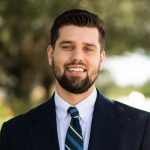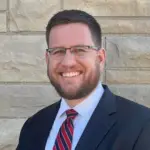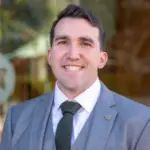Acts 15:36–16:10
I. Doubling the Missionary Outreach
A. Paul and Barnabas decide to revisit the churches.
They did not look on their ministry as one-and-done evangelism. Their call included a ministry of transformation of the entire life morally and alteration of the worldview intellectually. Paul identified his call as “a preacher, an apostle, and a teacher of the Gentiles” (2 Timothy 1:11). His letters are filled with a blending of doctrinal instruction, moral exhortation, and intellectual reorientation. The permanence and increase of a church’s witness to the glory of God depends on this continual redemption of all the faculties of life, individually and corporately. They determined, therefore, to “visit our brethren in every city where we have preached the word of the Lord” (36). He added, “and see how they are doing” [NKJV].
B. Barnabas wanted to take John Mark with them.
Paul “kept insisting that they should not take him along who had deserted them … and not gone with them to the work” (38 NASB). After the first stage of the first missionary journey, John Mark had left the team to return to Jerusalem (Acts 13:5, 13). He clearly was shaken by the events at Cyprus, was not prepared either for the opposition to the gospel or for the vigor of Paul’s retort to Elymas. John Mark, probably the young man of Mark 14:51, 52, needed more time to learn, to brace himself for opposition, and overcome his tendency to flee conflict. Paul knew this tendency in certain personalities. Later, he had to encourage Timothy along these lines also (2 Timothy 1:6–8).
C. Paul and Barnabas sharply disagreed over the suitability of John Mark for another missionary trip.
-
- Barnabas was a generous-hearted person and had encouraged Saul the persecutor when others sought to avoid him. (Acts 4:36, 37; 11:22–26). In addition, John Mark was his nephew (Colossians 4:10). Mark certainly had expressed sorrow over his recent failure, given a statement of renewed purpose, and saw the expansion of the gospel as his highest goal. Nothing could please his Uncle Barnabas more, and Barnabas was doing nothing to squelch this renewed sense of call and willingness to suffer for the glory of Christ. He was convinced Mark would be helpful and effective. Perhaps by this time, while at Jerusalem, Mark had begun to write his gospel from eyewitness accounts provided by Peter.
- Paul knew that the cities they were to revisit might have newly invigorated opposition in light of the hostility they encountered on the first visit. In light of the mission of teaching and encouragement, he did not want to risk having a case of fear on his hands in the group seeking to provide strength in witness, warning against defection, and encouragement to endure affliction (Philippians 1:27–30). A return visit for those who had endured the suffering before would be new territory for John Mark. This visit could not be a testing ground for the stickability of John Mark.
D. Paul and Barnabas select new partners and part ways.
-
- Barnabas took Mark and went to Cyprus, where Paul and Barnabas initially had gone to preach. John Mark was with them, and had traveled with them from their landing in Salamis across the island to Paphos. They preached in the “synagogues of the Jews.” Also, they had encountered Sergius Paulus, who wanted to hear the gospel, and Elymas, an opponent. If the pattern there previewed the pattern thereafter, churches had been established on the island during this visit. Barnabas wanted to return to strengthen them along with Mark who had been with them on that occasion. Perhaps he wanted Mark to face the precise place and situation that had discouraged him earlier, and also wanted him to experience the satisfaction of seeing the perseverance of these converts to the gospel. We do know that Barnabas’s careful stewardship of Mark’s gifts bore fruit, for later Paul himself wrote to Timothy, “Get Mark and bring him with you, for he is useful to me for ministry” (2 Timothy 4:11). He wrote this even at a time when he was experiencing abandonment from others who had been companions and probably was up against the day of his departure (4:6, 10, 16).
- Paul took Silas. Silas was a prominently gifted man from the Jerusalem church who accompanied Paul and Barnabas to Antioch to deliver the decision of the Jerusalem council. He was a prophet (15:32) and had preached a lengthy message there. Prophets in the New Testament received special revelation from the Holy Spirit in order to teach with authority in the churches. All churches needed to have revealed truth as the full implications of the work and words of Christ were being brought to maturity; the prophets fulfilled that need (See Ephesians 2:20; 3:5; 4:11; 1 Corinthians 12:10, 28; 14:1, 3, 6, 22, 24, 25, 29–32). Silas had been confirmed in the Spirit and in the eyes of the church as a prophet and was commissioned by the church at Antioch to go on this second missionary tour with Paul.
II. The missionaries would engage churches with the goal of establishing a context in which their faith could mature.
A. Paul selected Timothy to go with him and Silas. This actually was the third trip to Lystra (Acts 14:8, 21).
-
- A young disciple named Timothy was there in Lystra. His mother and grandmother had also become believers (2 Timothy 1:5), and even prior to that, they had taught the Sacred writings to Timothy (2 Timothy 3:15).
- Timothy had been active in ministry already in Lystra and was well spoken of by the Christians there. In addition, he had traveled to Iconium, (16:2) where a large church had been founded earlier by Paul and Barnabas (Acts 14:1–5), to teach and strengthen them. They had benefited from his work among them and reported his ministry with high commendation.
- His father was a Greek, evidently not a believer, and Timothy was uncircumcised. It is ironic that Paul circumcised Timothy on the very trip where he is reporting about the decision of the Jerusalem council. This had nothing, however, to do with an acceptance into the community of believers; it was done only that Timothy might minister unhindered by ceremonial prejudice in the synagogues to which Paul and Silas would go (Acts 17:1, 2).
B. They strengthened the churches.
Verse 41 of the last chapter gives this summary anticipating the brief narrative of these visits. The monumental decision made at Jerusalem concerning the affirmation of justification by faith alone by their denying the necessity of any fulfillment of the ceremonial law on the part of the Gentiles was relayed to all the churches (verse 4). The churches were being strengthened “in the faith.” The ministry of Paul, Silas, and Timothy expanded the body of revelatory material. Timothy would know precisely the concern of Paul when he wrote him in Ephesus to “charge some that they teach no other doctrine,” for some “concerning the faith have suffered shipwreck” (1 Timothy 1:3, 19). The numbers in these churches were increasing due to the witness of the church. This would be their first contact with an apostolic ministry.
III. We now encounter a narrative of clear divine leadership. An unusual narrative brings to the surface a reality that always is operative in God’s execution of his decrees in the world. We catch a glimpse of the purposeful direction given to the work of the gospel.
A. Their efforts to go to Asia were forbidden by the Holy Spirit (6).
We are not informed about the kind of insuperable hindrance that eliminated the planned excursion into Asia. The record indicates that the Holy Spirit either spoke in human language or gave a clear impression that God’s purpose for the further extension of the gospel was not for Asia at this time.
B. Their efforts to go into Bithynia were forbidden by the Spirit of Jesus (7). Again this seems to be immediate direction more than providential arrangement.
C. In Troas, Paul saw a vision of a man from Macedonia.
-
- In Troas, Luke joined the evangelistic team. At this point Luke’s recording of the events uses first person plural pronouns (11–15). In 2 Timothy 4:11, just at the point of the end of Paul’s earthly life, he wrote “only Luke is with me.”
- It seems that Paul alone received the vision of the man saying, “Come over to Macedonia and help us.” None doubted, however, Paul’s special place in this entire enterprise or suspected that he would mistake the nature and content of a vision given by the Lord.
D. The entire book of Acts could be written in terms of the particular, pervasive, and meticulous providence in every event. Nothing is outside the purposeful operation of God in accordance with his decree (Ephesians 1:11.)
-
- We are given some narratives in which the guidance of the Spirit is so clearly stated that we cannot mistake the determining power of his will. The coming of the Spirit at Pentecost, the healing of the lame man in chapter 3, Peter’s doctrinal confession of 4:28, the judgment of Ananias and Sapphira in chapter 5, the opening of the prison doors in 5:19, the work and witness of Stephen in 6:8–10, the special insight of Peter in 8:20–23, the preaching of Philip to the Ethiopian eunuch in 8:26, the conversion of Saul in 9:3–6, the vision of Peter in 10:11–16 as well as other events.
- Some incidents are described simply by reciting the immanent human factors of which they consist. For example, immediately in the texts following, the missionary team follows its informed judgment, looks for a place of prayer, finds Lydia, and she and her household are converted. Later, an irritating situation results in their arrest, a beating, and incarceration, and the conversion of the jailer and his family. They were not told by the Holy Spirit about how to execute these opportunities, but were left to trust in the arrangements of providence.
- Though Luke discusses the division between Paul and Barnabas only in terms of their strong disagreement, we must not think that God was remote from this event or that his decree failed to take it into account. He was just as present and operative there as he was in the vision given to Paul to go into Macedonia.
Poem
The saving grace of Christ transforms
The heart, the mind, the soul.
A thirst for more truth that informs
How mercy makes us whole.
One taste of glory makes the heart
Dwell in the hope that grace imparts.
So to the brethren we return
To find out how they fare.
Are they resolved, do they yet yearn
To hear the words we share?
“Let’s take John Mark along with us;”
But Paul said, “He betrayed our trust.”
Separate ways they journeyed, sent
Commended to God’s grace.
To Cyprus Barnabas’s intent,
Paul to the stoning place.
In Lystra Paul got Timothy,
Beloved of God, so all agree.
Paul circumcised him to prevent
Resistance from the Jews.
Then he and Paul and Silas went
To churches with the news
That covenanted grace was sealed;
The breach twixt Jew and Gentile healed.
They turned to Asia, God said “No.”
Bithynia God closed.
A dream, a voice, and God said, “Go.”
The gospel is disclosed.
Another continent must call
Upon the Savior preached by Paul.





























